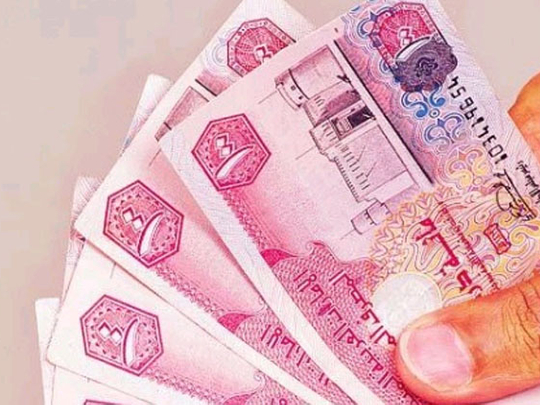
Dubai: UAE residents are among the worst savers in the GCC compared to their coin-conscious Bahraini counterparts, according to a savings index survey released on Tuesday.
The National Bonds GCC Savings Index surveyed 1,183 residents of Saudi Arabia, Qatar, Bahrain, Kuwait and Oman on their attitudes about the country's saving environment, their own saving potential and their financial stability.
Qatar has the highest saving environment in terms of saving tools, the economy and job opportunities. It also has the highest savings potential based on the respondents' plans to save money.
Residents of Kuwait, Saudi Arabia and the UAE have the lowest saving scores, according to the survey. Just over a quarter of the residents of the UAE said this is not a good time to save and had a negative view of their savings environment. About half the Saudi Arabian residents surveyed shared the same opinion.
Only 26 per cent of GCC residents actually save regularly despite 95 per cent of them believing that saving for the future is important.
Residents of Qatar showed the biggest commitment to regularly setting aside money, recording the highest instance of regular saving with 41 per cent, while at the other end of the scale Saudi Arabia had the lowest regular savings with just 23 per cent.
Three-quarters of GCC residents said they are not currently saving as much as they had planned and that they do not save regularly.
Oman scored highest in terms of its residents' financial stability, the survey showed.
The main factor affecting GCC residents' decision to save is finding a Sharia-compliant savings scheme, according to the study. The amount required to start saving, the reputation of the provider and the protection of the capital also play a part.
"While people in the GCC exhibit an overwhelming understanding of the importance of saving, they are not translating these intentions into actions," said Mohammad Qasim Al Ali, Chief Executive Officer of National Bonds.
Secure future
With the UAE being a country of expats here to make money and secure their future, it is hard to explain the low saving scores, said Mark McFarland, emerging markets economist at Emirates NBD.
"It has a much more dynamic consumer culture than other GCC countries. People are much more geared towards spending and there are more avenues for spending their hard-earned cash here for shopping, leisure and retail outlet," said McFarland.
There is also "relatively easy access" to credit despite the global financial crisis, he added.
"The recession does not necessarily lead to a big increase in savings," McFarland noted.
However, McFarland was surprised by the results.
"It is an illusion to say people here don't save as much. There are more investment products compared to other GCC countries," he said.
Savings do not mean hoarding money in a bank account and there is a wide range of investments that can generate enough returns for a secure future, he said. This is especially true in the UAE where the interest rates on saving schemes are lower than in countries like India.
Saving trends
Saving habits also depend on culture. For example, Asians tend to save more while Anglo-Saxons tend to save less, he said.
He pointed to the cultural diversity of the UAE and just looking at Emirati saving habits alone would give a different picture.
"It is unfair to look at a whole population and say they don't have an interest in saving," he said as many have high mortgage rates that cut into their income and their ability to save.
The survey was commissioned by National Bonds and conducted by pollster YouGov Siraj.
How much of your salary do you save? Do you find it hard to save money in the UAE?








